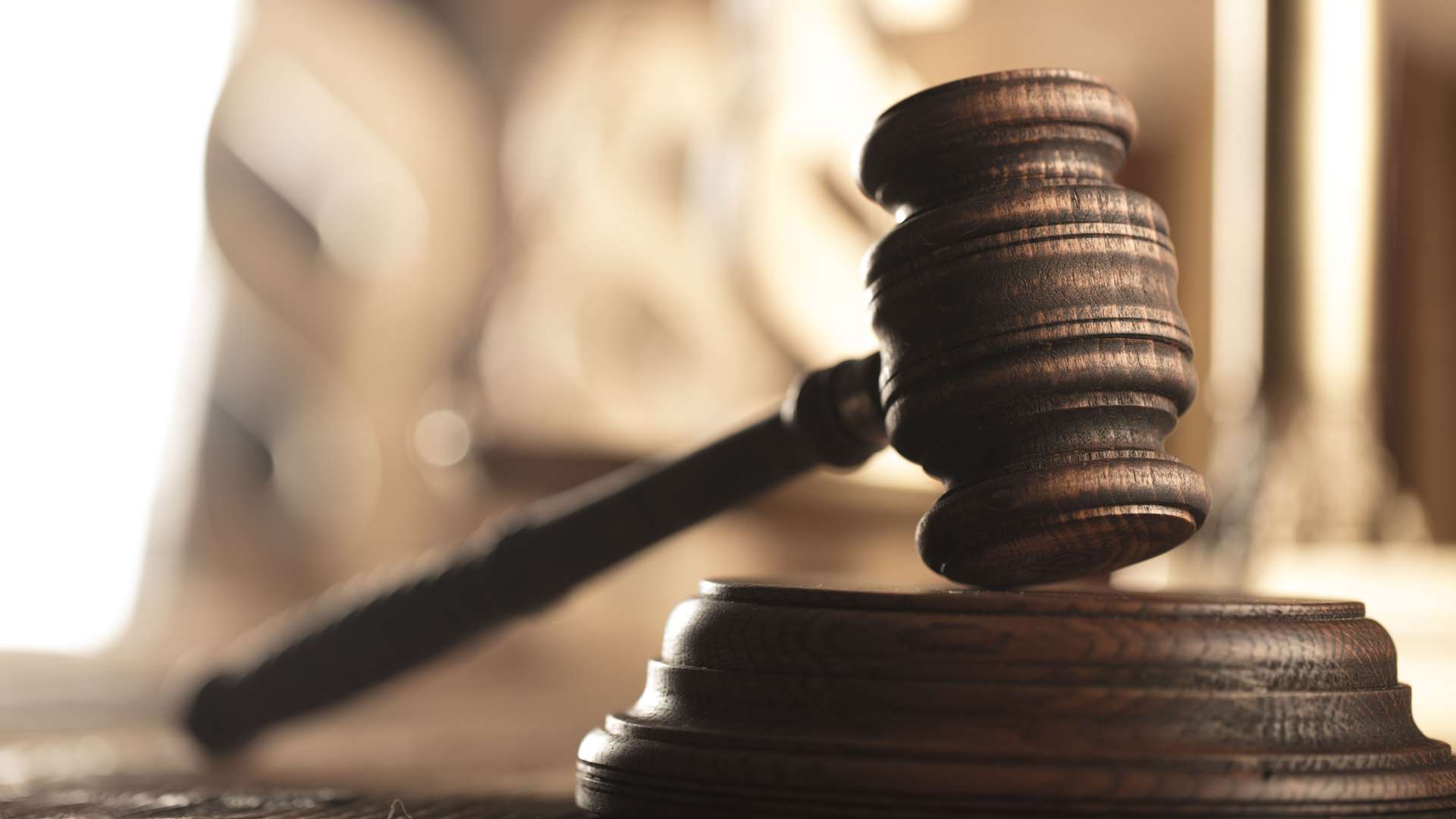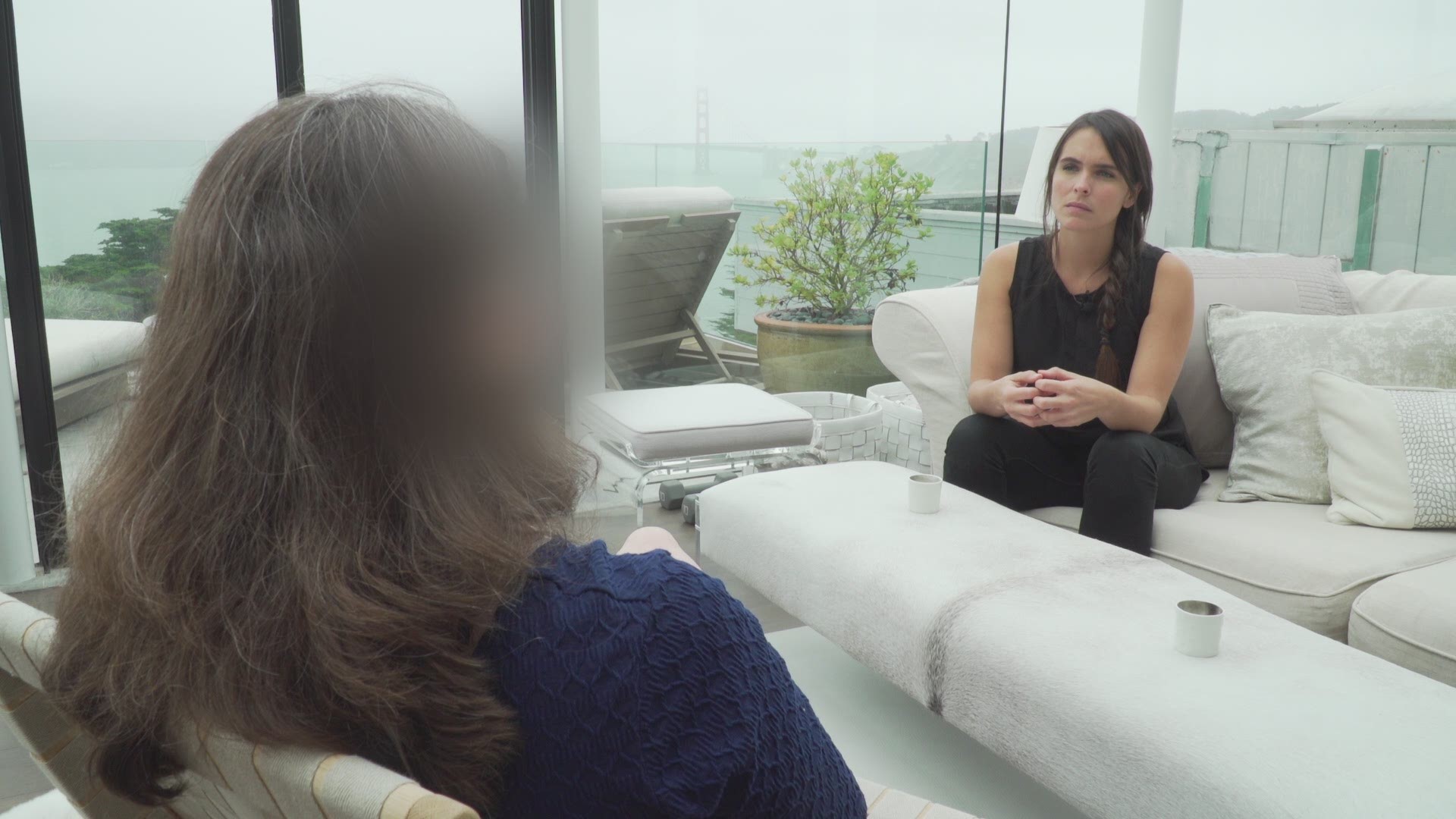The problem with family court
In most cases, divorcing parents go through the process outside of the courtroom, through mediation. But high-conflict divorces, when the parties can't agree, can end up on trial.
Zolnierek

Family court handles divorces, the division of assets, restraining orders and custody of children.
In most cases, divorcing parents go through the process outside of the courtroom, through mediation.
But high-conflict divorces, when the parties can’t agree, can end up on trial.
A different kind of court
Someone with a basic knowledge of the judicial system may walk into family court expecting to have the right to an attorney, access to trial transcripts, an investigative arm of the system tracking evidence to prove a claim, even a jury of their peers. But, family court is a civil court, so despite how serious the allegations that may be involved in a divorce, petitioners and respondents don’t always have those resources.
The kinds of protections that exist in criminal court make sense due to the high-stakes nature of criminal law, they are part of our constitutional rights. But in family court custody cases, although the stakes could be higher than losing their freedom, the same rights are not guaranteed. Many of the parents interviewed in this investigation say they would rather spend years in prison than lose contact with their children. Some of them have lost anywhere from tens of thousands to millions of dollars in the process of fighting custody.
Fighting for custody
Final custody orders in family court can be changed when there are significant changes in circumstances for the family, but what constitutes those changes is primarily up to a judge. It is also up to a judge to determine who is more credible when there are conflicting accounts of behavior that impact custody decisions. Because parties are not guaranteed an attorney if they can’t afford one, money can tip the scale of justice.
“Money buys how much justice can you afford,” said John B. Myers, a law attorney, author and professor at McGeorge School of Law. “Unfortunately that's true to some degree. I mean I'm a believer in our system, but that is true. On so many of these cases, money buys experts, money buys powerful, good, competent lawyers. You cannot just outgun the other side.”
Outgunning the other side could mean winning full custody.
Judge Colleen Nichols, who has practiced in Placer County said, “One of the things that happens in family law court when parents don't have representation, when they are not prepared for trial, is that they just basically give the court conclusions. They'll say, ‘Well so-and-so abused this child,' but what I really need is testimony and evidence. What were the observations? What happened? What day? What time? Present evidence in that way. Drawing a conclusion is not helpful and is not evidence.”
In order to protect the privacy of children, some crucial documents and evidence handled in family court are confidential and only available to the parties involved and attorneys. This makes shedding light on problematic practices, patterns and decisions made by individual judges and attorneys difficult.
Power of the judge
Whether defending themselves from claims that could jeopardize contact with a child or making accusations in the hopes to protect the child, parents are at the mercy of a judge. The judge is the one with the power to weigh the value of evidence, determine credibility or delegate some of those tasks to experts and mediators that will help the judge make a decision that is, as written by law, “in the best interest of the child.”
In a criminal trial, you would have attorneys, detectives and juries involved in the process of finding the truth. Although never perfect, the responsibility of justice is distributed among more than one. When there is a disparity in incomes, parents often complain that the experts brought in to assist the judge could be biased in favor of the paying parent. This is a difficult pattern to prove, due to the lack of transparency, oversight and data collection. But some parents complain about the closeness between certain judges, the attorneys currying favor with the judges and the experts hired and ordered to evaluate and testify in court.
Parental alienation
A therapist could have a personal bias and testify as an expert in a custody case, without disclosing the personal circumstances that could potentially lead to said bias or conflict of interest. ABC10 interviewed a therapist who said she was alienated from her children’s lives by their father. When asked if being an “alienated parent” could present a bias when making a determination or recommendation in family court, she said, “First of all, as a professional, I don’t tell anyone that I’m an alienated mother.”
Still, while discussing, as an expert, the symptoms of parental alienation, she would bring up examples of her own daughters. She admitted, “Do I have more sympathy for parents? Do I understand what they're feeling? Yes, I do. But I don't say that, of course.”
The problem with that sympathy is that, according to domestic violence advocates, claims of “parental alienation” are often used by abusers as a defense against allegations of child abuse. That “sympathy” could influence a therapist’s expert opinion or diagnosis and therefore impact a judge’s decision of who should get custody, whether the alleged abuser or the alleged alienator. And attorneys paid to represent either party will use what they can.
“If I represented a dad who said he's been falsely accused, it's not my job to prove the mother's case," Myers said. "It's my job to destroy the case and to destroy her if I need to. That's what we do."
He added that he I couldn't do that, but affirms that it happens, and many family court critics agree that the more money someone can pay an attorney for that kind of defense, the better their odds of gaining custody.
Questionable science could be used to discredit an allegation of abuse. The same psychologist, who testifies in family court cases and says she is a parental alienation and sexual abuse expert, told ABC10, “for example, this father was being accused of sexually molesting and assaulting his daughter. And I knew that he had diabetes and he couldn't get an erection.” She said the daughter talked about the acts of sexual abuse in court, but she thought they were false. When asked how she knew he could not get an erection, the therapist responded, “he told me.” While erectile dysfunction can be common in diabetic patients, discrediting a child’s disclosure of sexual abuse because of information provided by the alleged perpetrator, assuming he can’t be a child molester because he could suffer from erectile dysfunction, is a dangerous way to go about protecting children.
Judicial complaints
Parents with grievances against experts who testify or treat children, as ordered by judges, can take their claims to the Board of Behavioral Sciences or the Board of Psychology. But, even those bodies within the Department of Consumer Affairs encounter issues of transparency and access to documents that are confidential in the interest of protecting a child’s privacy.
When the process of a divorce begins, petitioners and respondents must disclose their assets and expenditures.
“They need to do away with income and expense declarations so that these attorneys and these judges, the courts, don't know how much money they have to play with…and try to extort from people,” said a mother who came to our studio to share her story, but chose to keep her identity concealed. She said she fears speaking to the media will result in her judge retaliating against her.
Parents have the right to a peremptory challenge, basically, they can remove a judge from their case. But this can only be done once. If they disagree on an order, they can also appeal the case. However, that appeal can only be based on a legal error, not factual errors of the case.
Judicial complaints are for the most part also confidential, except for a minuscule number of cases where judges acted so wrongfully that they were publicly disciplined. Since 1995, only 11 judges have been removed from the bench by the commission that oversees judgeships. The Commission on Judicial Performance (CJP) receives thousands of complaints annually.
Of the 1,229 complaints the Commission made conclusions on, just five judges were publicly disciplined. Three judges were publicly admonished, two were censured, and no judge was removed from the bench. Those are the only ways the public can learn that a judge has received a complaint. All others, including private investigations or admonishments, are confidential.
Even attorneys participating in the system say they are unwilling to speak on the record, fearing that if they defend a judge publicly, that could be used to disqualify them from a case.
Parents from across California, the country and the world have reached out to ABC10 with claims of corruption and bias, but without the proper data collection, constitutional protections, transparency and accountability these complaints remain disconnected, marginalized and unheard.
That’s why parents and advocates for court reform have taken this fight to the legislature. In 2016, they got the state to audit the Commission on Judicial Performance for the first time in its almost 58 year history
According to Kathleen Russell, Director of the Center for Judicial Excellence, “this crisis in the family courts has been going on for decades and it's taken a long time to get people to believe that this isn't just an anecdotal case or two but this is system wide failure in the California family court.”
The CJP sued State Auditor Elaine Howle to stop the audit. The Commission’s attorney Gregory Dresser told ABC10 their records are confidential and protected by the state constitution.
Howle’s attorney doesn't buy it, saying, "the Commission says 'no, you can’t look at it, we’re special.' And the auditor says, 'we’ll keep them confidential.' State law says the state auditor has to keep them confidential or there’s a crime; so there’s no issue here. We’re not gonna violate their confidential files, but they’re afraid.”
A judge ruled in favor of the Commission on Judicial Performance. The state auditor appealed, but that process could take years. Now, lawmakers are pressuring the CJP to somehow settle with the auditor or else lose their budget to operate. A Catch 22, since that could take the level of oversight from flawed to inexistent.
Follow the conversation with Lilia Luciano on Facebook.


